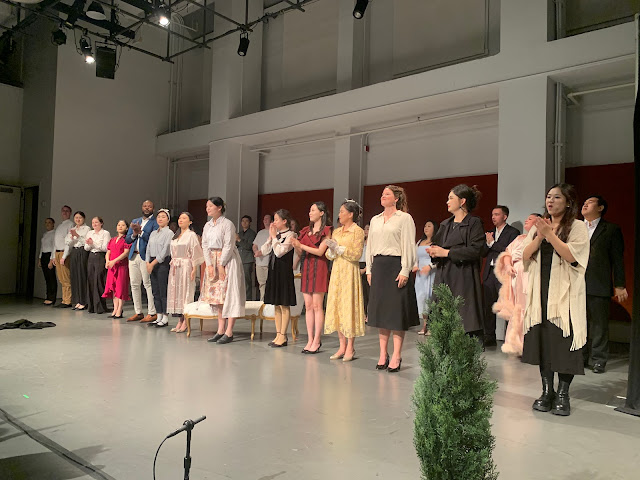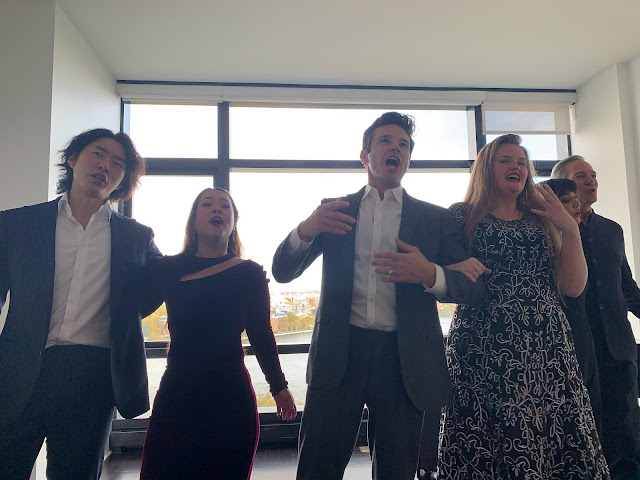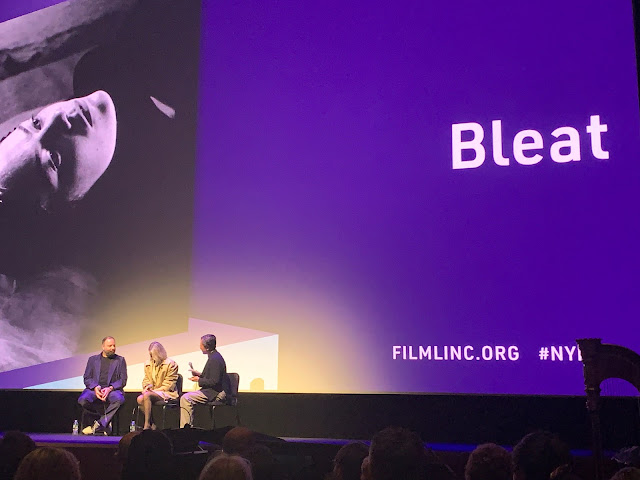MISSION
Sunday, October 29, 2023
STUDENTS 10- DIRECTOR 0
Friday, October 27, 2023
A VISIT FROM OPERA LAFAYETTE
Monday, October 23, 2023
LONDON FOUNDATION RECITAL
Sunday, October 22, 2023
CLA OFFERS FRENCH OPERA AND MÉLODIE
Monday, October 16, 2023
GIULIO GARI FOUNDATION WINNERS CONCERT
Friday, October 6, 2023
SHORT, STARK, AND SILENT
Yorgos Lanthimos, Emma Stone, and Dennis Lim, Artistic Director of the NewYork Film Festival
We observe a rugged bleak landscape with goats clambering up and down the rocks. They stare impassively at the camera. Inside a simple dwelling, a black clad woman stares at the camera with similar impassivity. The room is filled with old women, expressionless. We guess that it is a wake. We are correct. The priest and the guests leave and finally the woman feels free to express her anguish. In the next room is a corpse. His face is not hidden. We guess it is her dead husband. We are correct.
What happens after that in this chiaroscuro film, in the space of a half hour, is not so easy to guess. It appears that the woman satisfies her sexual urges with the corpse. It appears that the corpse comes back to life and dons the woman’s black garb. He drives off in a truck and thrusts a dagger into the ground and dances. By the end of the film we are mystified and shaken.
We are at the New York Film Festival watching Bleat, a black and white silent film directed by Yorgos Lanthimos, starring Emma Stone as the bereaved woman. We rarely review theater, ballet, and film, preferring to stay with opera, about which we know quite a bit; but something special drew us to this event. This silent film, never seen outside of Athens, can only be performed to live music. This was quite a novelty for the New York Film Festival audience. It made us wonder whether silent films a century ago were accompanied by live music. In this case there was an enormous chorus and a chamber group including a cimbalom, playing music by Bach, Knut Nystedt, and Toshio Hosokawa. The music amplified the unspoken feelings, which, in our book, qualifies as "opera".
The film is a co-production between the Greek National Opera (GNO) and NEON, originally commissioned as part of the Artist on the Composer program curated by GNO’s artistic director Giorgos Koumendakis and NEON’s director Elina Kountouri.
The Q and A after the film involved Dennis Lim, Artistic Director of the New York Film Festival, interviewing Ms. Stone and Mr. Lanthimos. Probably related to the AGFA strike, the conversation skirted issues which were not able to be discussed but the director and actress were modest and engaging and the audience applauded wildly nonetheless.
(c) meche kroop






